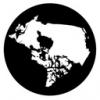

| Online: | |
| Visits: | |
| Stories: |

| Story Views | |
| Now: | |
| Last Hour: | |
| Last 24 Hours: | |
| Total: | |
Algonquin land claim and the ongoing issues
February 19, 2016
We are writing this letter regarding the systematic problems surrounding the Algonquin Land Claim that is being administered by Algonquins of Ontario (AOO) and Algonquins of Pikwakanagan First Nations (APFN).
These are the two major flaws when the government accepted to enter into negotiations with APFN. One, the rights and title was not clearly established and the second is the determining factor who would be the beneficiaries at the beginning of the land claim. Both of these grave issues have set a president for ongoing dissension.
In 1983 APFN petitioned the Governor General claiming rights and title to the Ottawa valley and its tributaries. INAC agreed to negotiate for the Ontario side only as it was potentially overlapping with the Algonquins of Quebec. It is reasonable to say why other First Nations in Ontario and Quebec are claiming rights and title. Then, in 1992, Golden Lake First Nation (renamed Pikwakanagan), submitted their study of land use and occupation. The study did not prove ownership and thus, the non-status families had to be included due to their part of ownership. Not many Indigenous people signed on and numbers were very low. Ten communities were created and at this present time, there are around 7,700 enrolled members.
Chief Lance Haymond made some good points in the APTN’s article of February 11th, to add comments, in our in depth research on family and root/ancestors names; we found non aboriginal people attached to our root name on the voters list. As stated in AOO’s literature, it takes 125 Aboriginal people to make it a legal entity. Kijicho Manitou Madaouskarini /Bancroft community is in question as according to our count the aboriginal members don’t reach to 125. We have read and been informed how the verification process is very “stringent” when processing applications to be eligible for enrollment.
The criteria in the AIP, has changed dramatically from 1994. This criteria was based on Algonquin and Nipissing blood lines as both have rights and title. As it stands now, Nipissing are not mentioned but what is interesting, along with our Algonquin root names, our Nipissing root names, Kegico (Kijicho) Manitou and Dufond are used in the voters list. In the latest AIP, the meaning of words can be misconstrued but what stands out is the words declares him or herself Algonquin and can demonstrate a culture connection. Does this mean if one self declares they do not have to provide proof of lineage? To understand the terms, culture and community connection needs clarification. In the article, a statement on who will be accepted in the land claim is confusing. It says “the proposed modern day treaty takes on a more progressive view of Indigenous identity not tied to blood but whether culture and community ties were maintained over the last 200 years”. Is it based on blood ties with a progressive view and/or based on culture connections, blood quantum or section 35 of the Indian Act? First Nations and the non-status are not fighting amongst ourselves) as suggested. In fact, we are collaborating to have our voices heard. These questions could have been avoided with comprehensive consultation.
The perception is given to the media is the majority of Algonquin people are consulted and agree with the land claim, and this is not the case. Further, giving away our sacred lands such as Chaudière Falls is unacceptable and this has been expressed by First Nations in Ontario/Quebec, aboriginal communities and individuals. The definition of “consultation” is very vague. Pertinent information does not flow to the Algonquins at large nor does it flow to the Canadians who live in the settlement area. To reference the same article, “you don’t ignore non-status people.” Our struggle and great effort to have proper consultation and have the issues addressed has been ignored. Ignored by an institution that purports to represent all Aboriginal people whether enrolled in the land claim or not.
So this leads to the AIP that is about to be voted on. How can status or non-status make a decision without comprehensive consultation? By being referred to read Algonquins of Ontario (AOO) Tanakiwin website, does not give any more insight into what is being negotiated.
Our rights and title are being taken. We are being extinguished. Is this, what is referred to as an “historical land claim?”
This Algonquin land claim needs restructuring from the top to the bottom. We are asking the government to re-negotiate with the rightful owners the settlement land.
Jo-Anne Green
Source: http://www.mediacoop.ca/story/algonquin-land-claim-and-ongoing-issues/34457


